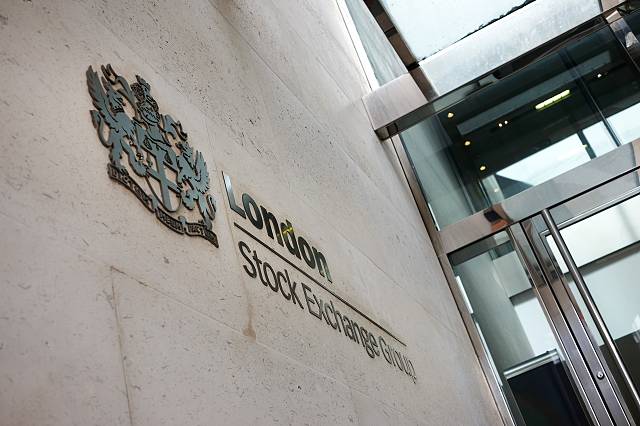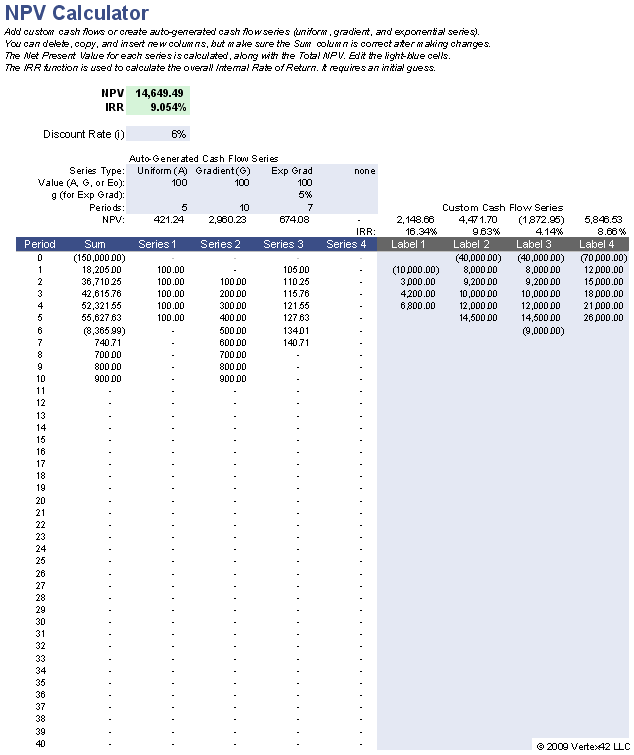Contents
Hospitality chain Oyo’s initial public offering is likely to be delayed by three months as India’s capital markets regulator has asked the Ritesh Agarwal-promoted startup to update its draft IPO papers. With 189 member countries, the World Bank Group is a unique global partnership which consists of five development institutions. The Deputy Chairman has violated all the canons of law, procedure, parliamentary procedures, practices and fair play. The Deputy Chairman did not allow points of order to be raised and did not allow large numbers of members of Rajya Sabha, from diverse political parties, to even speak against farm bills. Just like the substantive hate speech provisions in the IPC, the Programme Code is also much too vague and is also not applied uniformly.
- Hospitality chain Oyo’s initial public offering is likely to be delayed by three months as India’s capital markets regulator has asked the Ritesh Agarwal-promoted startup to update its draft IPO papers.
- FEMA Regulations, 2004 (‘erstwhile regime’) did not define the term ‘subsidiary’.
- On the International Day of Peace, the unjust structure which privileges great powers and permits their ghastly machinations should be diagnosed and challenged.
- SDS should be entities with limited liability, formed or registered or incorporated outside India or in an IFSC, and in case of unincorporated entities, with core activities in the strategic sector.
This will allow FDI inflows from group companies with multi-jurisdictionally operational entities having overseas investment and is definitely a welcome move for the multi-national corporations doing business in multiple different jurisdictions. SEBI suspects that some portfolio managers at these banks, which have significant presence in Indian financial markets, could have helped their Indian clients to route their money back into India in disguise of foreign funds via investment vehicles across various jurisdictions. Under the new rules, Indian entities can make investments in foreign companies that have Indian subsidiaries provided the whole investment structure doesn’t have more than two layers. Now, there are two interpretations about how the layers will be counted, experts said. An Indian non-financial sector entity can make direct investment in a foreign entity engaged in financial services , without prior approval.
“There are also certain concerns that this two-layer structure will set a precedent for other laws.” According to one interpretation, the Singapore entity is the first layer and Indian company will be the second layer. Worldwide there is not a comprehensively defined standard for the classification of a tax haven country. However, there are several regulatory bodies that monitor tax haven countries, including the Organization of Economic Cooperation and Development and the U.S. A tax haven is a jurisdiction with very low “effective” rates of taxation for foreign investors. Overseas investments, in excess of the limits, can be made in strategic sectors like energy, natural resources etc. under approval route.
Shares ended in the red on the last trading day of 2022, but India emerged as one of the top performing equity markets in a year when most others were knocked down by the US central bank’s aggressive monetary tightening to combat record-high inflation. “With the government amending the tax treaty with Mauritius, combined with the regulations on POEM , many concerns around round-tripping have been addressed. Both individuals and firms are being questioned without distinction, and often some of the most credible companies have been put under the lens,” said Dinesh Kanabar, CEO of tax consultancy Dhruva Advisors.
You’ve got this Prime Story as a Free Gift
Thus, it is an easier way of investing in the securities of other countries without any registration with the regulator of that country. Many foreign companies, offshore funds and non-resident outfits have had to take a call over the past fortnight on a matter that most overseas entities steer clear of for as long as they can — filing returns with the Indian Income Tax (I-T) Department. “The requirement that the investment should not result in more than two layers has given rise to some uncertainty for certain kinds of structures and, hopefully, it will be clarified in the coming days and bankers will take a common view,” said Rajesh Gandhi, partner at Deloitte India. Singhal said that as a thumb rule, this was being limited to swap by way of only fresh issue of equity shares of the acquiring Indian company. So, an Indian company, which desired to acquire shares of an overseas entity without paying cash consideration, could only do so by issuing its own equity shares, and was not allowed to instead transfer shares of another company already held by it, he explained. Previously, there was ambiguity on the extent and manner in which an Indian business could acquire shares in an overseas entity by paying for such investment by way of swap of securities.

There are others however, who have a different perspective on the regulations though. According to them, the layering should be counted from the first level of investment. If this be the case, only one subsidiary can be set up overseas before that entity invests into India. For e.g., an individual sets up a company overseas, and that company proceeds to make acquisitions in India. Such investments were largely driven by tax considerations and the resultant benefits to the Indian party making the investment, depending on the jurisdiction being used for the overseas entity. While this may sound simple enough, Indian parties have been known to set up a maze of investments overseas that would largely be impossible to track, before routing the money back to India.
Investors making money must pay taxes; no fear of FDI loss: FM
These agencies are also putting a question mark on all cross-border acquisitions by domestic companies if the foreign entity has an Indian subsidiary. Once control is established, the entity over which the foreign entity exercises the same will be regarded as a subsidiary of the foreign entity or an SDS. Most importantly, the structure of the subsidiary/ SDS has to comply with the structural requirements of a foreign entity i.e. SDS should be entities with limited liability, formed or registered or incorporated outside India or in an IFSC, and in case of unincorporated entities, with core activities in the strategic sector. The OI norms prescribe reporting requirements applicable to the Indian entity acquiring control through the foreign entity.

Now, the threshold has been made stringent to say financial commitments can be given only in cases where the offshore entity is controlled by the Indian party. As per the new framework, up to 10% equity in a foreign listed entity will qualify as OPI. More than 10% in a listed entity or any amount of equity investment in an unlisted entity will be seen as ODI. The International Centre for the Settlement of Investment Disputes settles investment-disputes between investors and countries. The International Finance Corporation provides investment, advice, and asset management to companies and governments.
Banking Exams
Originally, the RBI proposed round tripping to be allowed provided such arrangements should not result in tax avoidance. The government substituted the tax avoidance criteria with two-layer structure requirement. The meaning under CA, 2013 is linked with controlling the composition of the Board of Directors; or exercising or controlling more than 50% of the total voting power, either at its own or through one or more of its subsidiaries. IND-AS 110 defines subsidiary as an entity that is controlled by another entity and the meaning of control is linked with the ability to affect the variable returns through its power over the investee entity. The framework under competition law deals with combination of the acquirer and the enterprise, whose control, shares, voting rights or assets have been acquired or are being acquired such that it exceeds the prescribed threshold.
Companies up till these two layers do not need to seek any approval from the RBI. However, beyond that, any investment made by the entity in any other company will not be allowed to make investments in India without prior approval from the RBI. The draft OI Rules proposed dilution of the restriction by prohibiting financial commitment by a PROI in a foreign entity that has then invested or invests in India, directly or indirectly, which was designed for the purpose of tax evasion/ tax avoidance.

In 2015, the limit for remittances was raised 10 times – from $25,000 in a year in 2004 to $250,000 in 2015. The outflows also shot up 10 times – from $1.3 billion in FY15 to $13.7 billion in FY19. The tax havens are also the favourite destinations for the outward FDI – as a study by the Indian Institute of Foreign Trade for the period of FY08 to FY15 and RBI’s latest Census on Foreign Liabilities and Assets of Indian Direct Investment Companies ( ) show. Incidentally, a 2016 study of emerging economies by the Washington-based Peterson Institute for International Economics had found a similar phenomenon. 1-year online access to the magazine articles published during the subscription period.
Besides tax-related benefits for being considered as a single entity despite having various cells, foreign banks have also been found in the past of hard selling these schemes to their wealthy clients for reasons like protection of identity. The regulator fears that some promoters might also have been involved in such practices to boost share prices of their companies by showing a strong interest from foreign institutional investor . A few years ago, the only way to accumulate financial assets in India was to invest in conventional investment categories like equities, bonds, real estate, FDs, etc. The Revised Framework eases restrictions under the Old Regime to a large extent.
round tripping of funds
When it becomes evident that the basic objective of a broadcast is to evoke hatred and to vilify a vulnerable minority the law must find a way to foil the harm. A lot depends on how the Court strikes this balance because hate speech, once uttered, not only leaves little room for restitution but can also ramify to serve all manners of undemocratic ends. It will water down the labour rights for workers in small establishments having less than 300 workers and would enable companies to introduce arbitrary service conditions for workers.
The said information should be read with directions issued by RBI giving effect to above decisions. While the information is believed to be accurate to the best of our knowledge, we do not make any representations or warranties, express or implied, as to the accuracy or completeness of this information. Reader should conduct and rely upon their own examination and analysis and are advised to seek their own professional advice. We accept no responsibility for any errors it may contain, whether caused by negligence or otherwise or for any loss, howsoever caused or sustained, by the person who relies upon it. Round tripping of FDI refers to the capital belonging to a country, which leaves the country and then is reinvested in the form of FDI. The layers can either be calculated in relation to the Indian entity, in which case its step-down subsidiary (“SDS”) will be the second layer, or in relation to the foreign entity which will cover an SDS of the foreign entity as well.
Pathbreakers 1 & Pathbreakers 2 contain deep insights, unknown facts and captivating events in the life of 51 top achievers, in their own words. Legal recovery of debts is one of the cornerstones of the Indian legal system and the mainstays for the enforcement of commercial contracts. All the above arguments point out to the fact that either there should a mechanism to trace the final beneficiary of P notes or they should be gradually phased out by proper consultations with the intermediaries. Women are up against negative stereotypes and biases more often when being interviewed for jobs.
How Tax Havens Are Misused by the Rich and Powerful
As a concept, round tripping occurs when money circles back to the country of origin from where the investment was initially made. In the process of voluntary liquidation of the investment companies of Sterlite, alleged the petitioners, the overseas corporate body i.e. Twinstar became the holding company with controlling interest in Indian companies. In this process the promoters of Sterlite effected book adjustments which amounted to write off of Rs. 23 crores.
Indian laws present several complications when an attempt is made to distinguish permissible speech from hate speech. NBA represents the collective voice of the news and current affairs broadcasters in India. The reskilling fund is arbitrarily framed as the Code has no idea from where the funds for the same will come apart from employers’ contributions. It has also proposed to set up a re-skilling fund for training of retrenched workers Marginal Analysis with contribution from the employer, of an amount equal to 15 days last drawn by the worker. Without the need of a standing order in increased industrial establishments due to the raised threshold, the process of hiring and firing workers will be more flexible and faster for employers which would result in increased employment. After becoming a law, orders will not be dependent on whims and fancies of executives of state governments.
The RBI compounded one such contravention in April this year and is probing eight more cases. Two years ago, the SEBI had slapped 22 entities with a fine of Rs 17.55 crore for round-tripping. Is sebi serious about these issues or is it a ploy to give its masters a handle to rake in moolah during election time. It is being given vide powers at this juncture when they are not using the power already vested in them to do the job for which they are created. The bank had also been accused of indulging in various questionable transactions with entities from countries like Mexico, Iran, North Korea, Saudi Arabia, Bangladesh, Syria, Cuba, Sudan, Burma, Cayman Islands, Japan and Russia. Last year, the RBI started scrutinising anti-money laundering and KYC systems of Standard Chartered and HSBC.
These are used to detect crime but cannot be used as direct evidence to prove legal cases. Recently, over 2100 Suspicious Activity Reports were filed by banks with the United States Department of the Treasury’s Financial Crimes Enforcement Network . Vishnu Lutchmeenaraidoo, the Finance Minister of Mauritius said they will submit a new protocol for that, which will have issues related to capital gains with respect to DTAA.
The end to achieve in case of control is the right to appoint a majority of directors or control management or policy decisions and holding 10% or more stake is just a means to achieve the end, and not the end itself. If 10% becomes the revised threshold for determining control, companies will now have several SDS pursuant to holding https://1investing.in/ of stake by existing JV/WOS. FEMA Regulations, 2004 (‘erstwhile regime’) did not define the term ‘subsidiary’. However, it stressed on the requirement of holding 51% or more of the subsidiary in various regulations. Under OI rules, a subsidiary or step down subsidiary (‘SDS’) is an entity in which foreign entity has control.
